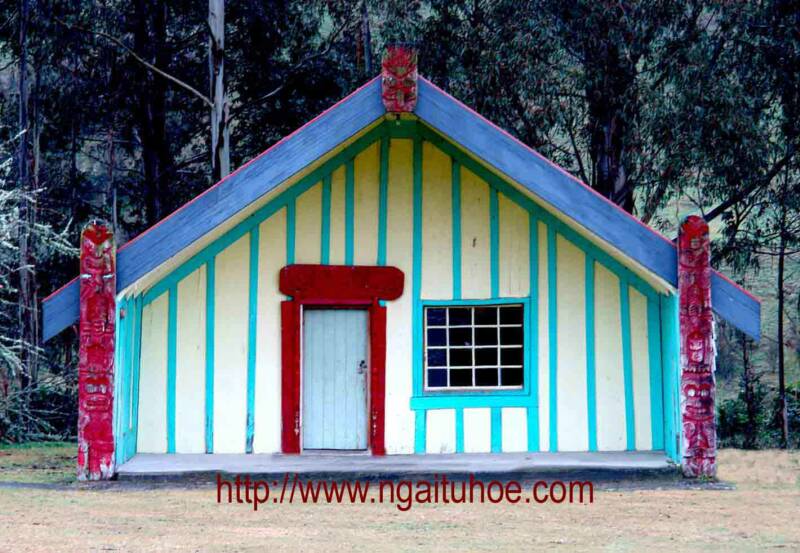

This was around the time that the Native Districts Regulation Act 1858 sought to provide for the limited introduction of British law into what were termed “native districts”. Tuhoe chiefs were among the 37 tribes to give their allegiance to the Maori King at Pukawa on the shores of Lake Taupo in 1857. Tuhoe leaders chose to oppose the Pakeha government. For instance, by 1848 many Urewera Maori, having heard of the high rate of wages paid at Auckland for Maori labour, had left the area to work on the public roads. Tuhoe were aware of the changes brought by the settler government. When Tuhoe and other tribes fought against the government, governments up to 1985 and tribes themselves regarded such actions as treaty breaches, excluding those tribes from the terms of the treaty. Tuhoe did not sign the Treaty of Waitangi, argue that they were never presented with the opportunity to do so, and Tuhoe leaders acted as if they were not bound by the terms of the treaty. Obligations cut both ways but the Waitangi Tribunal rules as if the Crown alone is bound by obligations. “Serious breaches by the Crown of its obligations.” Read the facts and decide whether those who claim to descend from the Tuhoe described here were entitled to the $170-million payout. Finlayson utters the “worst in the story of our nation" line at every settlement signing. This payment is on top of $60-million that Tuhoe received as part of the Central North Island forests collective settlement in 2008, and £100,000 received in 1958 as compensation for a road that was not completed.īrimming with social justice fervour, Treaty Negotiations Minister Christopher Finlayson said the "past breaches against Tuhoe are some of the worst in the story of our nation", and challenged critics by saying “if you have any questions about Tuhoe, go and read your history”. The settlement, signed on June 4, 2013, includes Crown acknowledgements of breaches of the Treaty of Waitangi and its principles, a Crown Apology for those breaches, an agreed historical account of the relationship between the Crown and Tuhoe, redress relating to Te Urewera, Mana Motuhake redress incorporating a social service management plan for the Tuhoe district, and a financial and commercial redress package totaling $170-million.
#Tuhoe hapu series
Clifford brings a wealth of governance and management experience to the Board, and currently holds several governance positions in respect to Tūhoe infrastructure and development.Were Tuhoe innocent victims of crafty colonisers or did their 19th century leaders make a series of bad choices that exposed their people to the sharp edge of the British Empire? This article compares some Office of Treaty Settlements rhetoric that alleges “Crown behaviour made a harmonious relationship with Tuhoe impossible” with historical fact. He is known to tourists visiting the area as a tour guide around the area’s most beautiful scenic walkways. National:Clifford has over 30 years’ experience in private enterprise. This role provides services to the iwi enabling reconnection and repatriation of multi generations around the world, linking whānau back to marae and hapū. Iwi: Cliff plays an instrumental role on the Tūhoe Whakapapa Kōmiti. He played critical roles in maintaining mandate relationships remaining connected to regional community and iwi level politics and was vital in communicating negotiations progress to the community. Cliff was a key member of the Tūhoe negotiations strategy group and attended and contributed to various negotiation meetings. Marae/Hapū: Clifford is of Ngāti Rere and Tamaruarangi hapū and was elected by Te Waimana Kaaku, the collective hapū interests operating within the Waimana rohe of the Tūhoe rohe.

Clifford and Kuini currently reside in Waimana. Whānau: Married to the Kuini and a committed father and Koro to his whānau. Clifford Akuhata is a well-respected figure within Tūhoe communities and actively contributes to improving opportunities for the future of Tūhoe people.


 0 kommentar(er)
0 kommentar(er)
